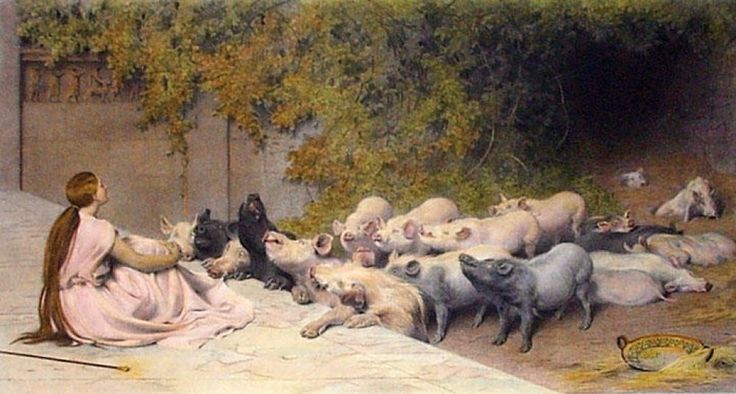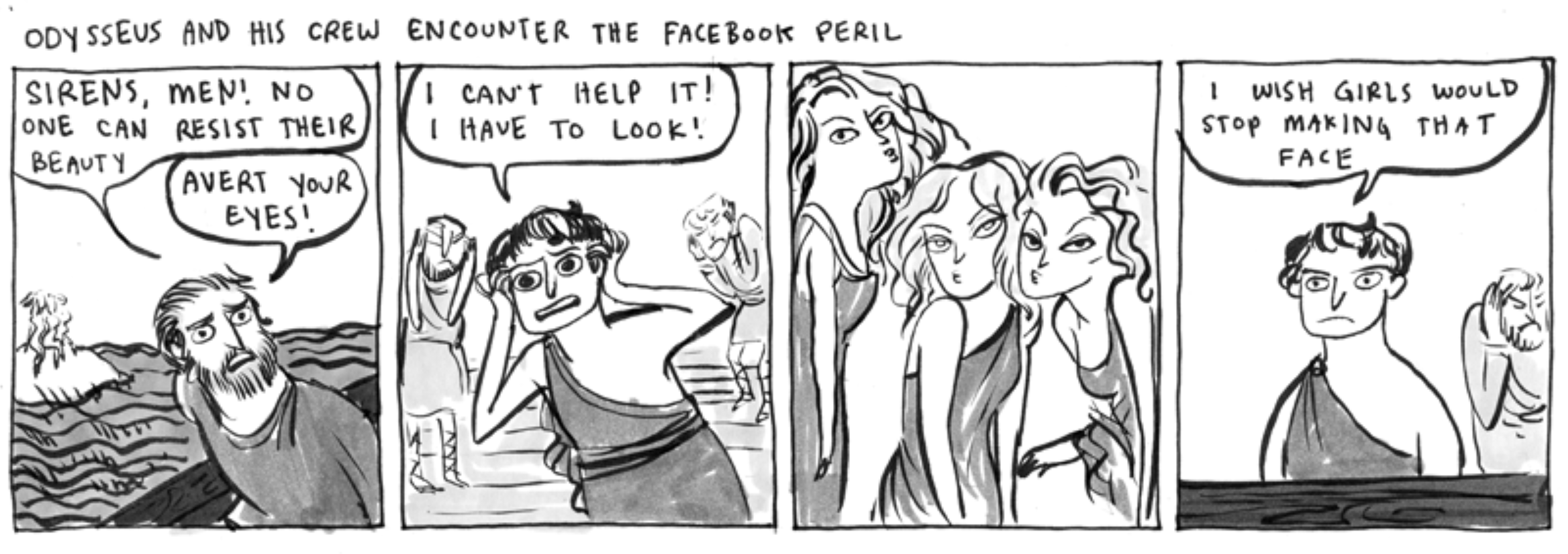4.3: Story- The Odyssey
- Page ID
- 47157
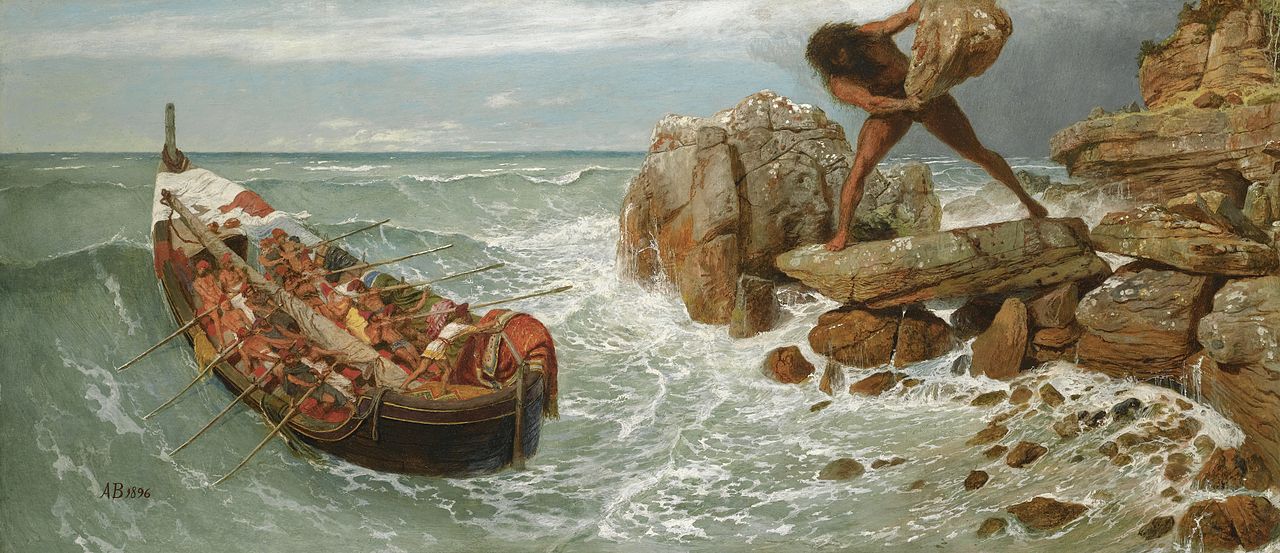
The Odyssey
Adapted from Bulfinch’s Mythology by Thomas Bulfinch, $\ccpd$ and Greek Gods, Heroes, and Men by Caroline H. and Samuel B. Harding, $\ccpd$
After the Trojan War was ended by the burning of Troy, the Greeks filled their ships with precious things that they had gathered and set sail for home. It was not a long journey back to Greece, and some of the princes returned quickly and happily to their own land. But one king, the king of Ithaca, named Odysseus, had more adventures on the journey back than he had met with before the city of Troy itself; and it was not until 10 long years had passed that he succeeded in reaching his native land again.
Odysseus had been one of the wisest and bravest men in the battles about Troy, and he proved himself to be wise and brave in his long and hazardous journey home. It would be too much to tell of all the adventures that he had, though at some time you may read them in a book composed by a great Greek poet named Homer. Here we can tell only a few of the wonderful things that happened to him.
After sailing for a long time, and seeing many strange lands, Odysseus and his men came to the land of the Cyclops. These were a wild and ungovernable race of giants, each of whom had only one great eye in the middle of his forehead. They neither planted nor plowed the fields but lived off their herds of sheep and cattle. Odysseus landed here and went with some of his men to explore the country. Soon they found a great high cave, with much cheese and milk in it. They entered to wait until the owner came. Finally he appeared, bringing his herds into the cave with him.
When Odysseus and his men saw how large and fierce he was, they would gladly have run away, but the giant had rolled a huge rock against the entrance of the cave so they could not get out. When the Cyclops named Polyphemus saw them, he immediately showed them what they might expect from him, by grabbing two of the men and eating them. The next morning, he ate two more of them, and then took his herd out to pasture. But before he left, he rolled the rock back in front of the entrance of the cave so that Odysseus and his men were still kept as prisoners.
While he was gone, Odysseus planned a way to escape. He found a long pole in the cave, and the end of this he sharpened into a point, and then hardened it in the fire. When the giant had come back and had again eaten two of the men, Odysseus gave him some wine which they had brought with them when they came to the cave. When he had taken this and was sleeping drunkenly, Odysseus and his men plunged the sharp stick into his one eye and blinded him.
Polyphemus could not see them now, and so he could no longer catch them. The next morning Odysseus and his men got out of the cave by clinging to the underside of the sheep as the giant let them out to pasture. And though the giant felt the back of each sheep as it went out to see that none of his prisoners got away, they all escaped safely. But it happened that this cruel giant was the son of Poseidon, the god of the sea; and from this time Odysseus and his crew had to endure the wrath of the sea-god for what they had done to his son.
After leaving the land of the Cyclops, Odysseus came to the island of Aeolus, the god of the winds, who entertained them kindly for a whole month. When Odysseus took leave of him, Aeolus gave him a strong sheepskin bag, tied tightly with silver string. This held all the winds of heaven except the west wind, which was left out to blow him gently home. With this, Odysseus sailed for nine days steadily onward, until he was so near his native land that he saw the people on the shore. Then, while he slept, his men secretly opened the bag of the winds to see what great present it was that King Aeolus had given to their leader. All the winds of heaven flew from the bag, and storms raged and blew them out across the sea until they reached the very island of King Aeolus from which they had just left. After that, King Aeolus refused to help them.
Next, Odysseus came to the island of a sorceress named Circe. She was very beautiful but had a very bad habit of using her potions to control everyone she met. Here, as soon as Odysseus’ men arrived, Circe came out to the shore and invited his crew to a delicious meal. Of course, the hungry men rushed inside her vast mansion, not knowing that the food has been poisoned. As they ate, the men noticed that they were slowly turning into pigs. One of his crew members, Eurylochus, was suspicious of Circe’s invitation and waited outside for Odysseus. Circe opened her door and out ran a group of pigs. Eurylochus ran to Odysseus to tell him what happened, but just then the god Hermes approached them and gave Odysseus some moly, a plant that when eaten would help one resist magic. Odysseus consumed the plant, resisting Circe’s spell and forcing her to change them back into men again. Then Odysseus and his crew lived peacefully with her for a whole year; and when at last they were ready to set sail again, Circe told Odysseus what he must do to get safely back home. This was to go down to the world of the dead and ask about his journey.
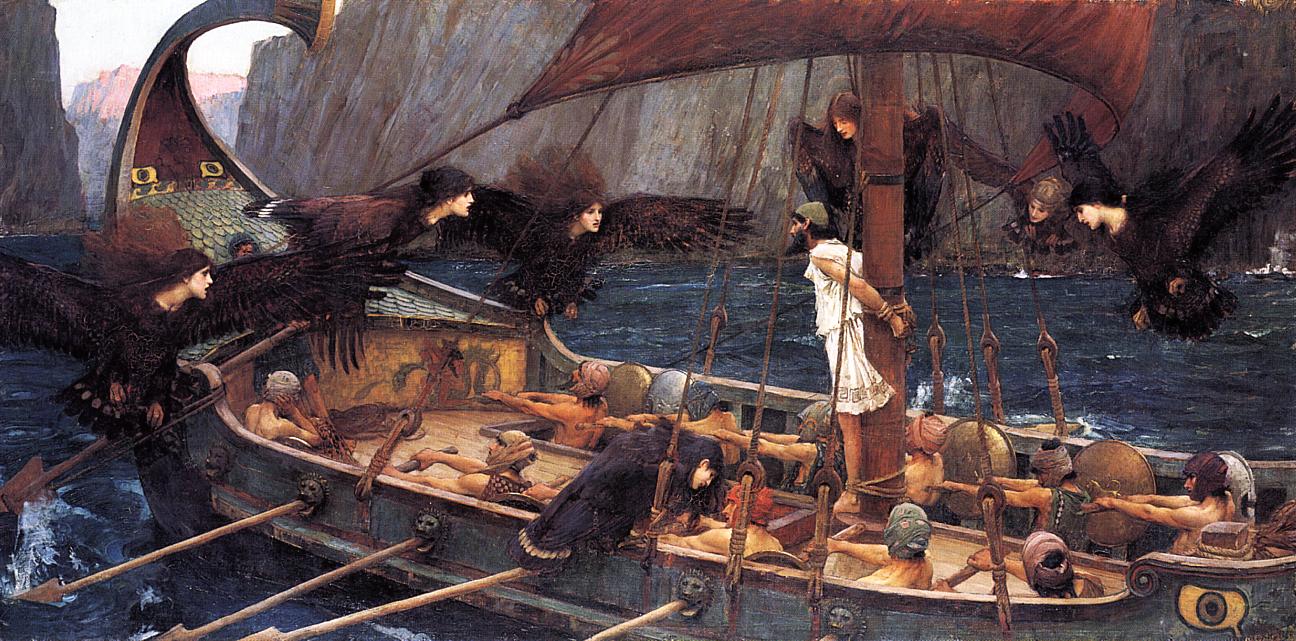
Odysseus, along with Circe, set sail for the edge of the Underworld and met with many familiar monsters along the way. When Circe saw the ship approaching the coast of the Sirens, she instructed Odysseus and his crew to put wax in their ears to block the seductive voice of the Sirens and told Odysseus to tie himself to the ship if the songs of the Sirens stole away the men. As they approached the Sirens’ island, the sea was calm, and over the waters came the notes of music so enchanting and enticing that Odysseus struggled to get loose from the mast of the ship, and by cries and signs to his people begged to be released; but they, obedient to his previous orders, sprang forward and wrapped him up tighter. They held on their course, and the sound of the music grew weaker until they could hear it no more, when with joy Odysseus gave his crew the signal to unseal their ears, and they were relieved.
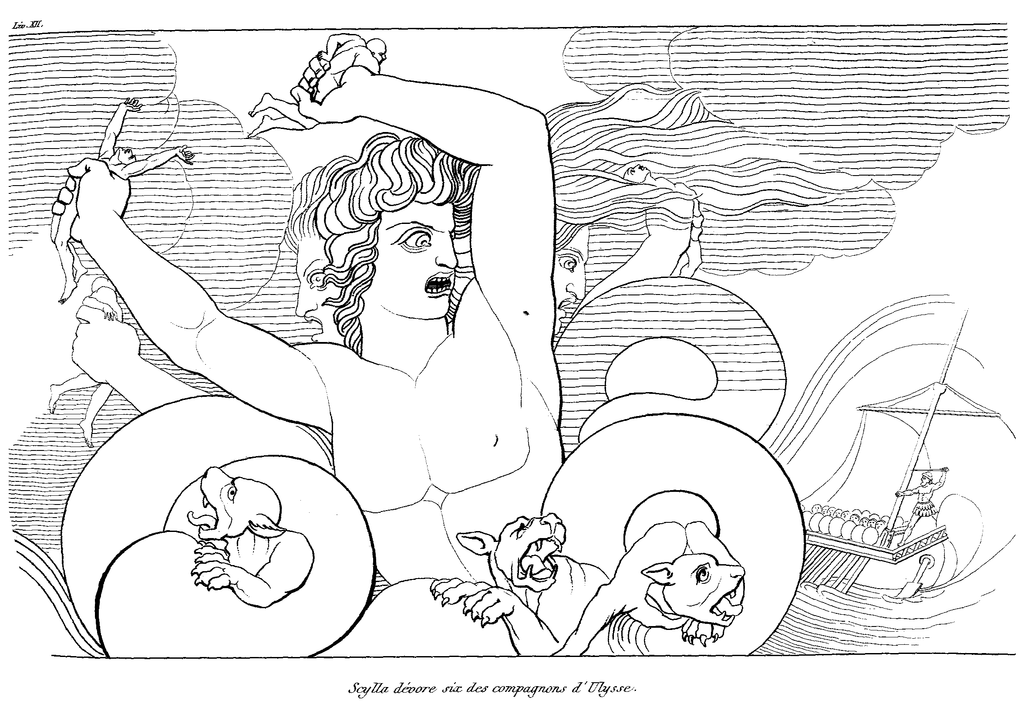
Odysseus had been warned by Circe of the two monsters Scylla and Charybdis. Scylla inhabited a cave high up on the cliff, from where she thrusts forth her long necks (for she had six heads), and in each of her mouths grabs one of the crew of every boat passing within reach. The other terror, Charybdis, was a whirlpool. Any boat coming near the whirlpool when the tide was rushing in will inevitably be swallowed up; not even Poseidon himself could save it. On approaching near these two fearsome monsters, Odysseus kept strict watch to keep an eye out for them. The roar of the waters of Charybdis gave warning at a distance, but Scylla could nowhere be found. While Odysseus and his men watched with anxious eyes the dreadful whirlpool, they were not equally on their guard from the attack of Scylla, and the monster, darting forth her snaky heads, caught six of his men, and took them away, screaming, to her cave on the cliff. It was the saddest sight Odysseus had yet seen; to witness his friends like this and hear their cries, unable to give them any assistance.
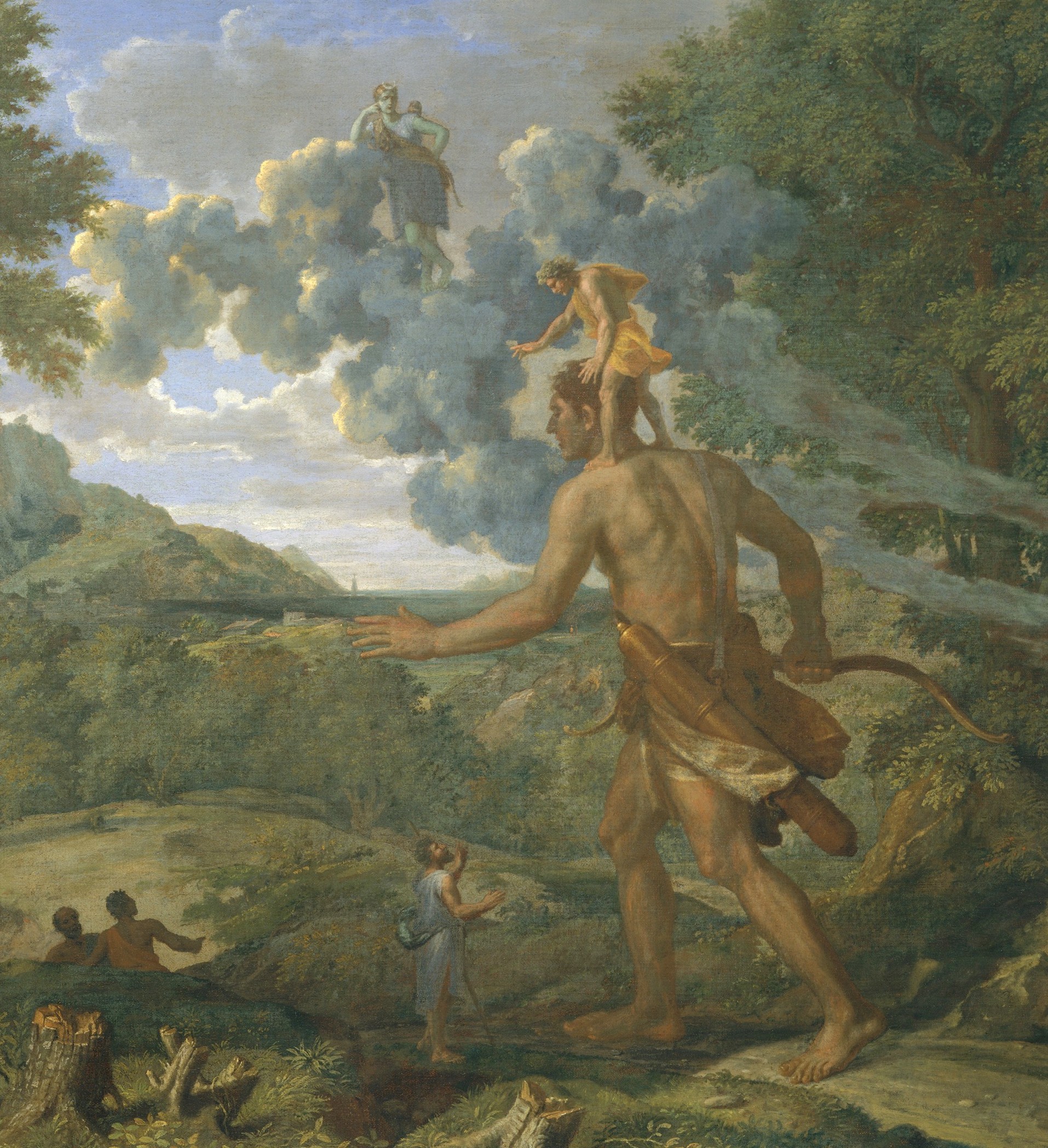
Finally, Odysseus and his remaining men reached the gates of the Underworld. There he met many great heroes who had passed–his friend Achilles, Patroclus, and others who had died in the Trojan War. He also met another hero, Orion, a giant hunter and demigod whose mortal soul had traveled to Hades while, like Hercules, the immortal half rests in the stars. Hephaestus’ tutor Cedalion stood on his shoulder just as he had done before to lead him towards the sun to get healed after being blinded during one of his adventures. Although he was healed, Orion and Cedalion had become best friends.
Odysseus sees Tiresias, a famous blind oracle, and there he was told of the wrath of Poseidon because of what he had done to his son, the Cyclops Polyphemus. He was told also that he should reach his home in spite of Poseidon if he and his men would only leave untouched the oxen of Hyperion, the Titan of the Sun, when they get to the island where they live. Then Odysseus returned to the upper world, and once more he and his men set out on their way.
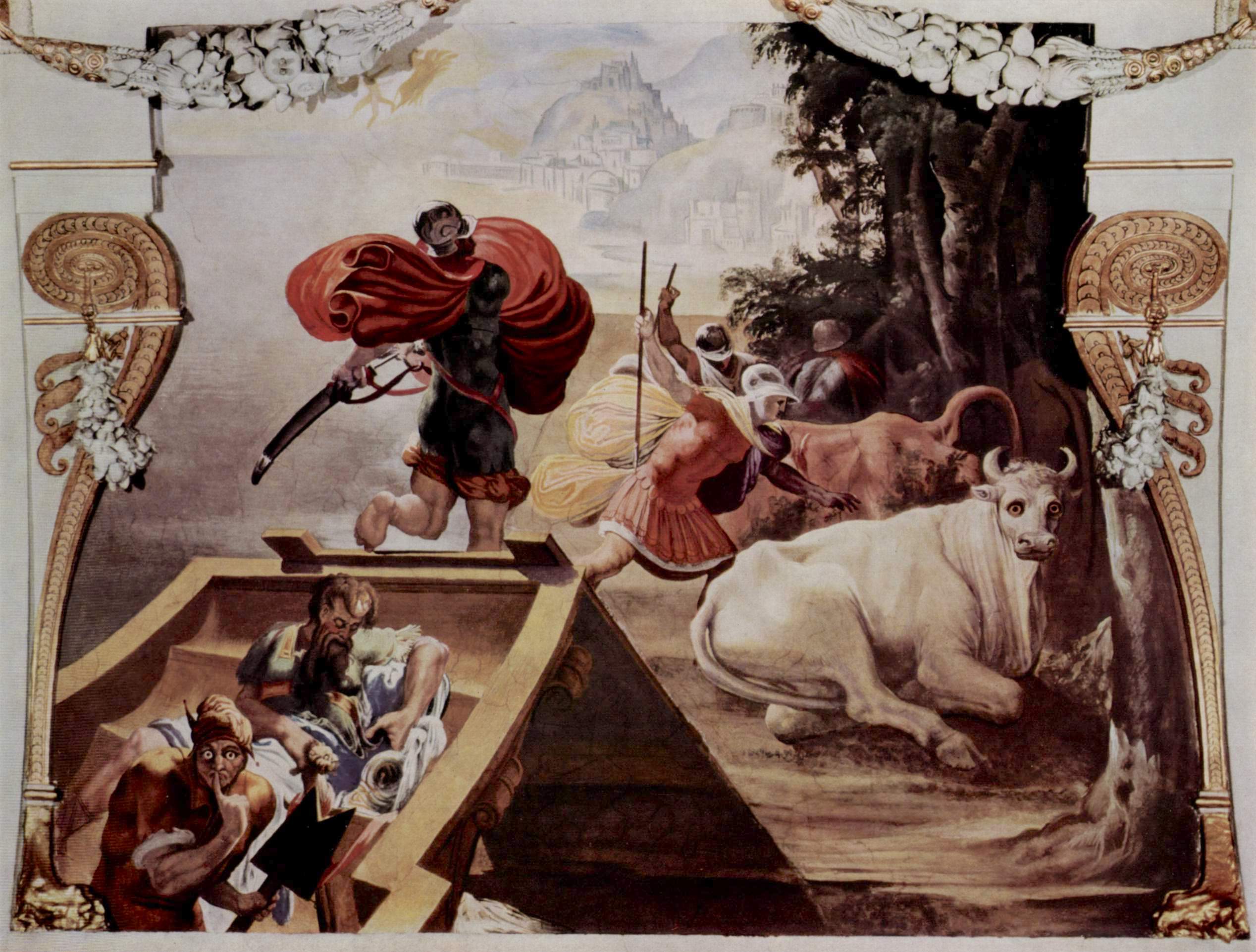
Again they met with many adventures. At last, they came to the island where the oxen of the sun fed in the fields. Odysseus did not wish to land here, but his men insisted on spending the night on shore. When Odysseus had made his men promise not to harm the oxen of the sun, he agreed to this, and they landed. That night a great storm came, and for a whole month, they could not leave the place. They ran out of food, and though they hunted and fished, they could not get enough to eat. At last, while Odysseus was sleeping, his men killed some of the oxen of the sun and ate them; and Helios, the sun-god, was angered.
When the storm ceased, they set sail again. But they had not gone far before Zeus launched a great thunderbolt at their ship because they had eaten the oxen of the sun. The ship was destroyed, and all the men drowned except Odysseus. For 10 days he swam in the sea supported by the mast of his ship. Then he was thrown on the shore of an island that was ruled by the goddess Calypso.
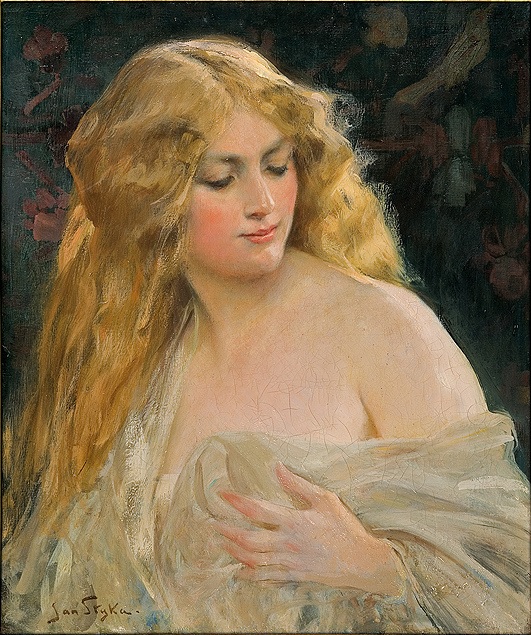
Odysseus was kindly received by the goddess, who instantly fell in love with him as soon as she set her eyes on him. Calypso had been exiled to the island of Ogygia after siding with her father Atlas during the Titan Wars. Happy to see a man after being alone on the island for thousands of years, she begged Odysseus to stay, offering him eternal life if she would stay with her and be her lover forever. But after seven years, he longed to return to his wife, Penelope, his son, Telemachus, and to his native land of Ithaca.
Athena, the patron goddess of heroes, noticed that Odysseus seemed stuck and unhappy. She begged Zeus to do something to spark the next step in Odysseus’ journey home. Zeus then sent Hermes to demand that Calypso release Odysseus and allow him to go home. As soon as she saw Hermes approaching her, she knew what it was for. She stared Hermes right in the eyes and said, “Do you dare take away the only love I have ever had? The father of my two children? You gods are such hypocrites. You are so jealous to see a goddess sleep with a mortal man, although you men do the same all the time with no repercussions. Odysseus is happy here with me. Let him be.” Hermes explained that Zeus is not in the mood to be compassionate towards her. At last, the goddess agreed to let him go and even helped him build a strong raft. He set sail once more – this time alone. After he left, many times Calypso tried to kill herself, forgetting her immortality, and thus remaining on the island, suffering terrible heartache. After leaving the island of Ogygia, for 17 days he sailed in safety. But Poseidon had not forgotten his old anger against Odysseus. He sent a great storm that crushed his raft, but Odysseus once more swam to shore and was saved.
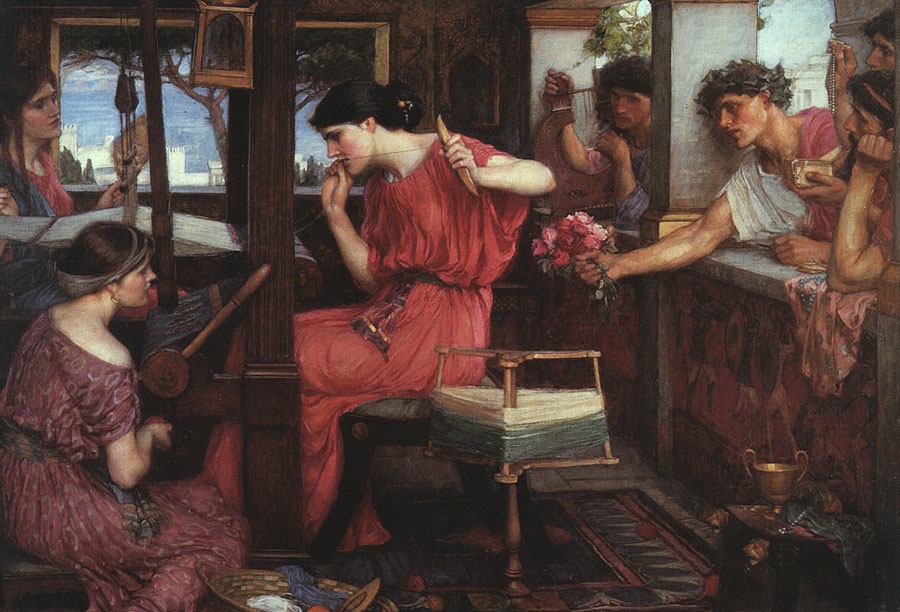
All during Odysseus’ wanderings, his son Telemachus was looking for him. Telemachus was about 20 years old and sharing his absent father’s palace on the island of Ithaca with his mother Penelope and a crowd of 108 boisterous young men, suitors whose aim was to persuade Penelope to marry one of them, all while partying in Odysseus’ palace and eating up his wealth. Penelope did her best to protect herself from all these men, even promising to finally marry one of them as soon as she would finish her tapestry. But every night while the suitors were asleep, she would unravel parts of the tapestry so that it would never get done. Odysseus’ protector, the goddess of heroes, Athena, requested Zeus finally allow Odysseus to return home when Odysseus’ enemy, Poseidon, was absent from Mount Olympus. Then, disguised as Telemachus’ trainer and teacher, Mentor, she visited Telemachus to urge him to search for news of his father. As Mentor, she told Telemachus that he must find Odysseus to defend his home from the suitors destroying their livelihood. After some time, the suitors realized that Telemachus was gone. Angry, they devised a plan to ambush his ship and kill him as he sailed back home. Penelope overheard their plot and began to worry about her son’s safety.
Odysseus washed upon the shore of the island of the Phaeacians and was found by the king’s daughter while washing clothes with her maidens in a river that flowed into the sea. When he told her his story, she took him to her father. Odysseus no longer looked like a king at this point. Many days alone at sea without food or adequate clothing made him a poor sight. The king pitied him and was a gracious host, just like many of Odysseus’ hosts had been, as was the custom in ancient Greek times, for one never knew if the guest were a mortal or a god in disguise. Odysseus stayed a few days, his host now a captivated audience to the tales of his adventures so far. At last Odysseus was taken to his own home in one of the ships which belonged to this king.
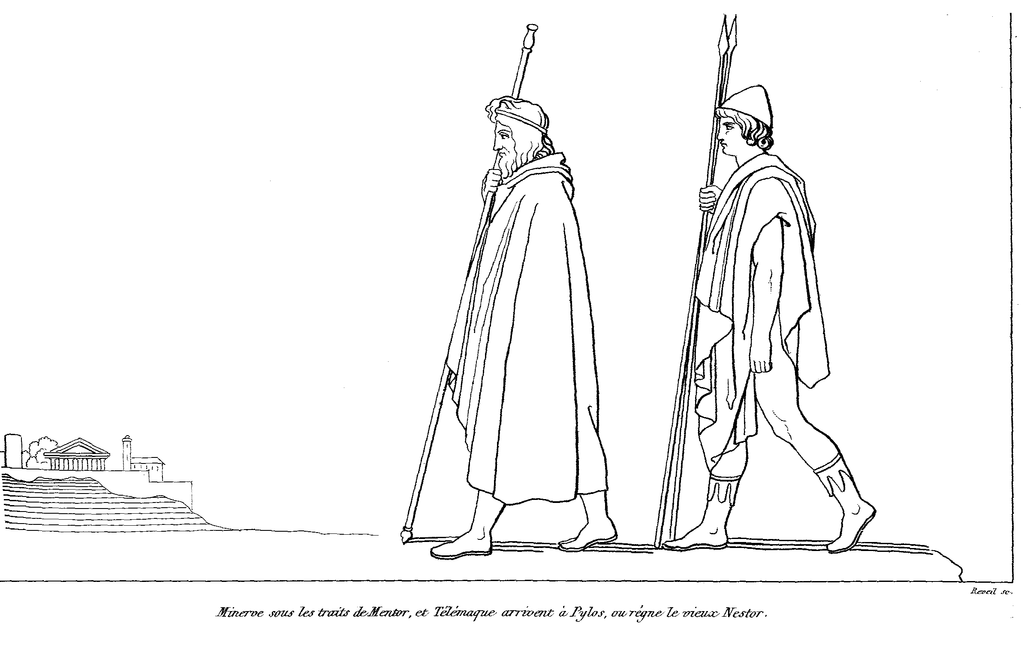
So, after much suffering and many wanderings, Odysseus reached home, and Athena once again in disguise as Mentor urges Telemachus to return home at once. More than a hundred nobles of Ithaca and of the neighboring islands had been for years fighting for the hand of Penelope. The real Mentor was sent to the palace to inform Penelope privately of her son’s arrival, for caution was necessary with regard to the suitors, who, as Telemachus had learned, were plotting to intercept and kill him. When Mentor was gone, Athena presented herself to Odysseus and directed him to make himself known to his son. At the same time she touched him, removed at once from his face and body the damage of time, and gave him the vigorous manhood that belonged to him before his journey towards Troy. Telemachus viewed him with astonishment, and at first thought he must be more than mortal. But Odysseus announced himself as his father and accounted for the change of appearance by explaining that it was Athena’s doing. Telemachus threw his arms around his father’s neck and cried. Odysseus disguised himself as a beggar and entered his palace, hoping to find Penelope.
Penelope decided something must be done. The continued absence of her husband seemed to prove that his return was no longer to be expected. Meanwhile, her son had grown up and was able to manage his own affairs. She therefore agreed to a competition of skill among the suitors. The test selected was shooting with the bow. Twelve rings were arranged in a line, and he whose arrow was sent through the whole twelve was to have the queen for his prize. Then spoke Odysseus, “beggar as I am, I was once a soldier, and there is still some strength in these old limbs of mine.” The suitors laughed at him and commanded him to leave the hall for his audacity. But Telemachus spoke up for him and asked him to try. Odysseus took the bow and handled it with the hand of a master. With ease he pulled back the cord, then fitting an arrow to the bow he drew the string and sped the arrow with utmost accuracy through each of the rings.
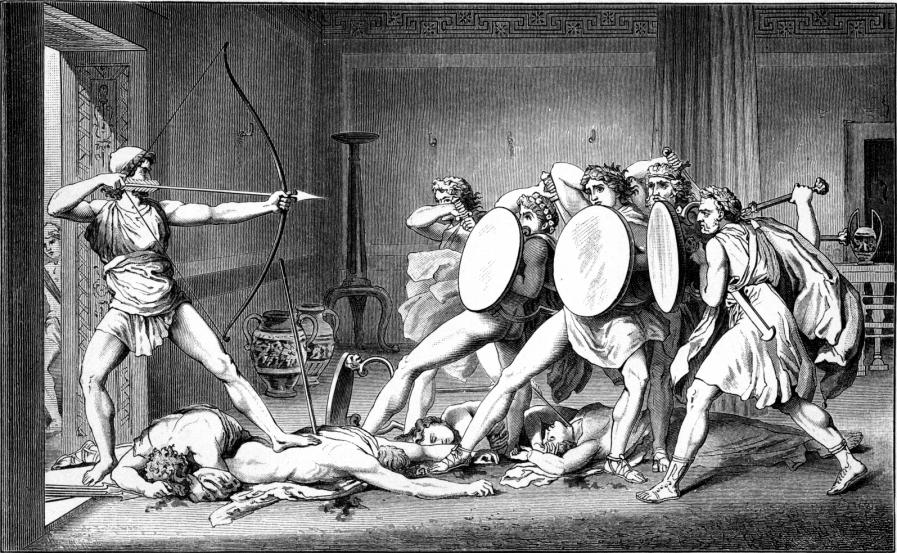
Without allowing them time to express their surprise, he said, “Now for another mark!” and aimed directly at the suitor that laughed the loudest at him. The arrow pierced through his throat and he fell dead. Telemachus, Mentor, and another faithful follower, well-armed, now sprang to the side of Odysseus. Odysseus left them not long in uncertainty; he announced himself as the long-lost king of Ithaca, whose house they had invaded, whose food they have wasted, whose wife and son they had harassed for ten long years; and told them he meant to have copious vengeance. All were killed, and Odysseus was finally master of his palace and owner of his kingdom and his wife once again, 20 years after he had left to go fight in the Trojan War.
Comprehension and Critical Thinking Questions
Answer the following questions according to the story.
- How long did it take for Odysseus to get home?
- What is a Cyclops, and how did Odysseus escape the cave of the Cyclops?
- Why did Poseidon want to punish Odysseus and his crew?
- What is the story of the sheepskin bag? What can we learn from this story?
- What did Circe do to the crew?
- How did Odysseus avoid Circe’s curse?
- How did Odysseus avoid the attack of the Sirens?
- What happened when Odysseus tried to avoid Scylla and Charybdis?
- What two things did Odysseus learn while in the Underworld?
- How did Odysseus and his crew anger Helios?
- Where did Odysseus stay for 7 years?
- What did Odysseus find when he finally reached home?
- What do you think of Odysseus’ crews’ actions?
- What do you think of Penelope?
- Hospitality is a big theme in The Odyssey. What do you learn in the story about being a host and the responsibility of being a guest, especially considering Penelope’s suitors?
Vocabulary from the Story
There are quite a few interesting words we get from this story.
- The Odyssey is an epic–a very long poem of many hundreds of pages that describes an adventure story. More recently this word has been popularized as an adjective. Read the Merriam-Webster entry below:
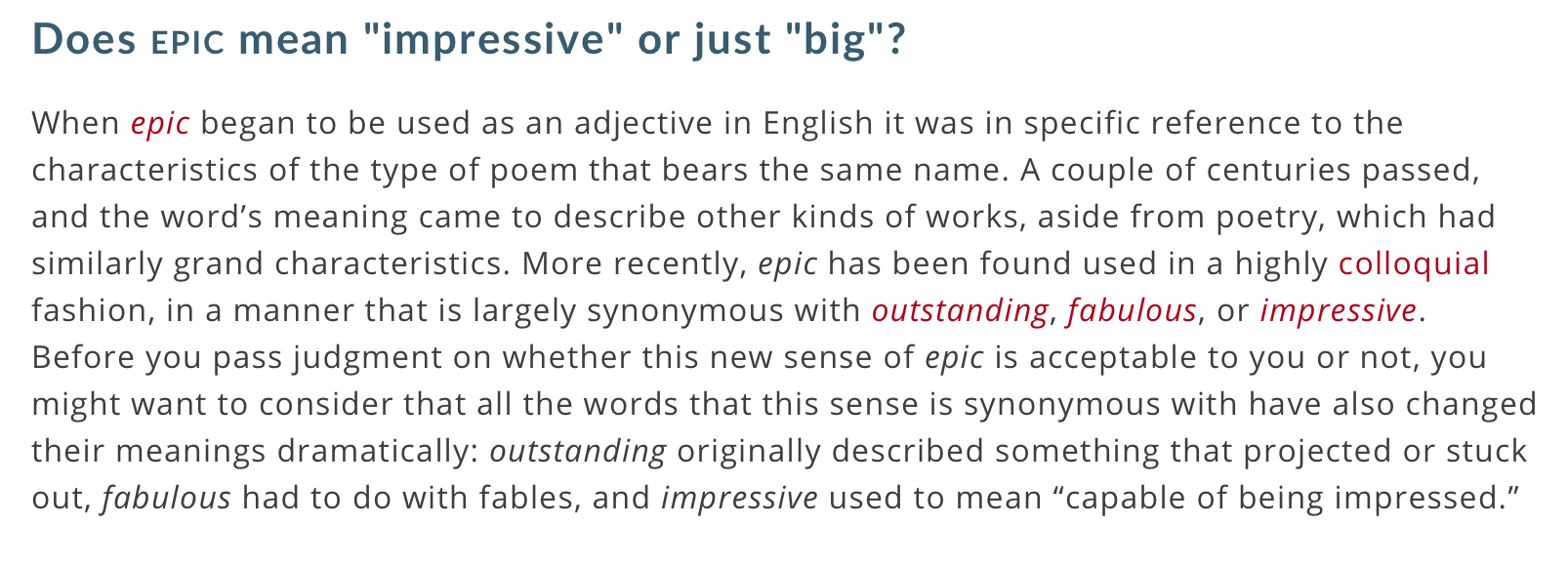 What does “epic” mean as an adjective? Use it in a sentence.
What does “epic” mean as an adjective? Use it in a sentence. - The name of this story, the Odyssey, is named after the main character, Odysseus. Read below for Merriam-Webster’s entry about the word:
 Give an example of an odyssey.
Give an example of an odyssey. - A very common word that comes from this story is the word “mentor”. Read the Merriam- Webster entry for this word:
 Who is your mentor? Explain.
Who is your mentor? Explain. - Read the Merriam-Webster entry below for “Penelope”.
 Based on the story, do you think Odysseus was just as patient and faithful as his wife Penelope was?
Based on the story, do you think Odysseus was just as patient and faithful as his wife Penelope was? - We get the phrase “siren song” from this story. Can you guess what it means before heading to a dictionary? What does it mean, and what could be an example of a siren song?
- We get the phrase “standing on the shoulders of giants” from this story. Which part of the story does this phrase come from? Can you guess what it means before heading to a dictionary? What does it mean, and what could be an example?
- The following phrase does not originate from the story but can be related to the same part of the story as the previous question. What does it mean to “see the light”? How is it related to the same story part as number 6? Give an example of a time you “saw the light”.
- A phrase that is similar to the previous one is “to dawn on someone.” What does “dawn” mean as a noun? What does it mean for something to “dawn on” someone? How is this meaning different from “seeing the light”? Give an example of a time when something “dawned on” you.
- We also get the idiom “tie (oneself) to the mast,” which means to work hard and make a promise to avoid temptation, or sticking fixedly to a particular decision, allowing oneself no change of mind. What part of the story does this idiom refer to? Give an example of a situation where you have tied yourself to the mast.
- Related to the idiom above, we also get the phrase “Ulysses pact” or “Ulysses contract,” which has several meanings. It could involve making a contract while you are well, physically or mentally, for treatment in the future when you may not have a sound mind to say yes or no to later, or more broadly it can be making a commitment for your future self to stay away from something, to ensure self-control–like getting rid of all snacks in your apartment to try to lose weight, or say you will donate money to an evil cause the next time you smoke a cigarette.
What would be your Ulysses pact?
Analyzing Cartoons
Discuss the following cartoons with a partner. How are they related to the story of Odysseus?
CEFR Level: CEF Level B2



